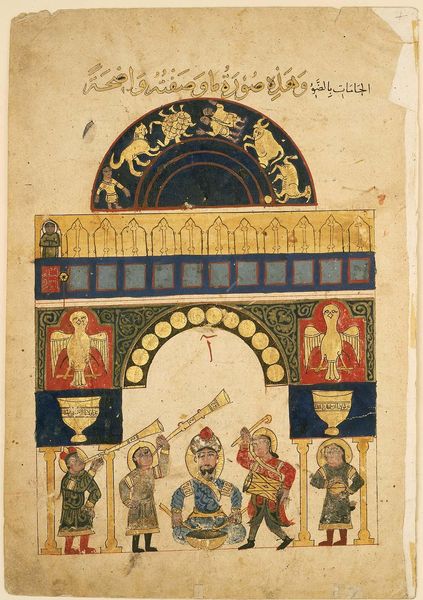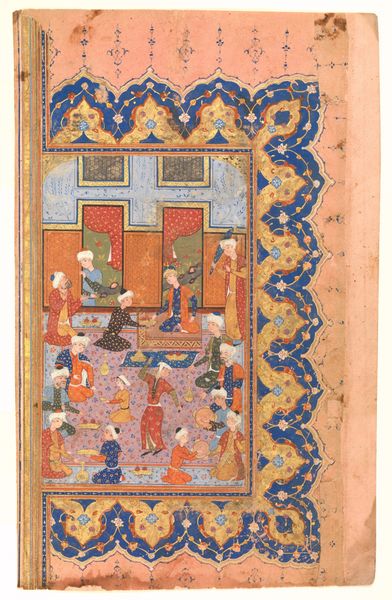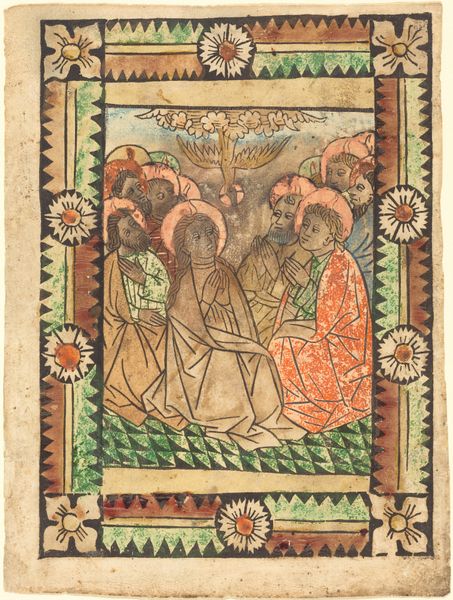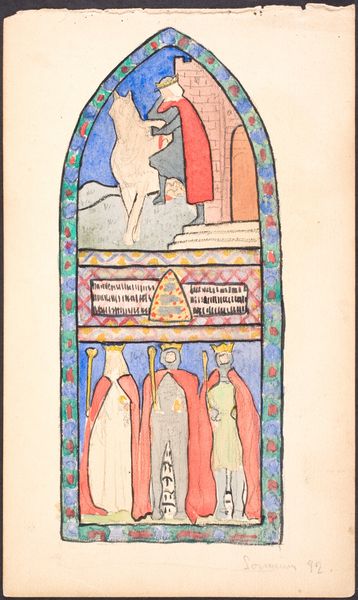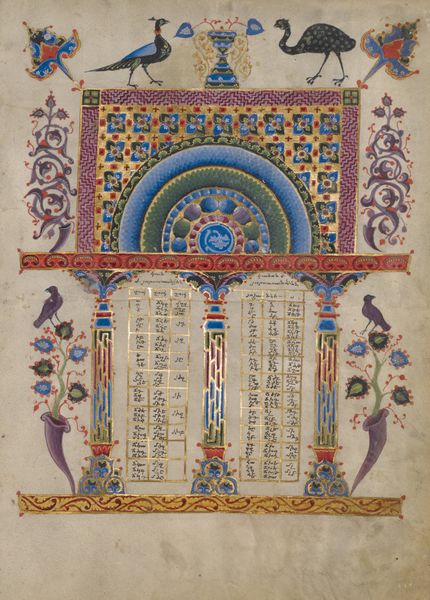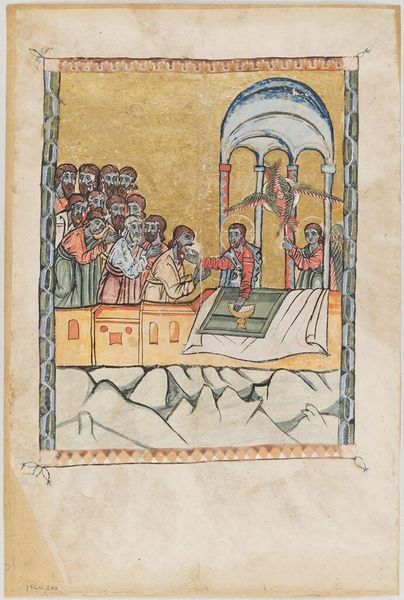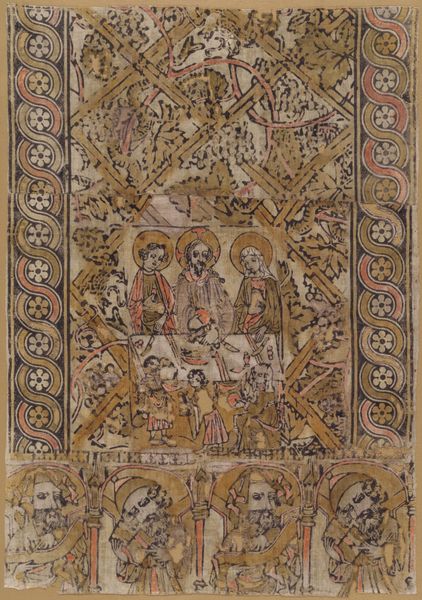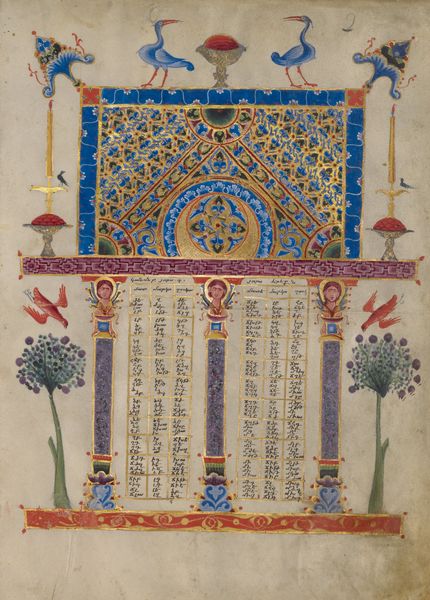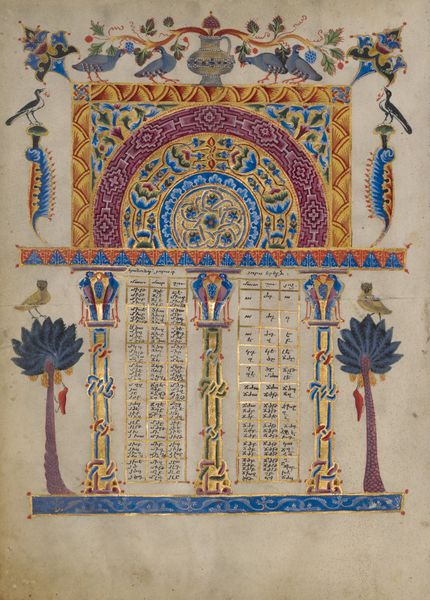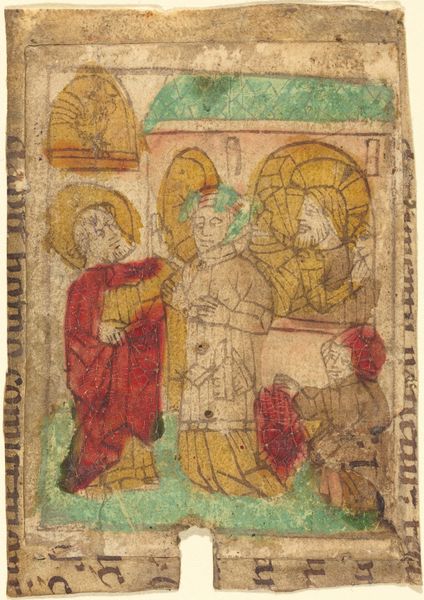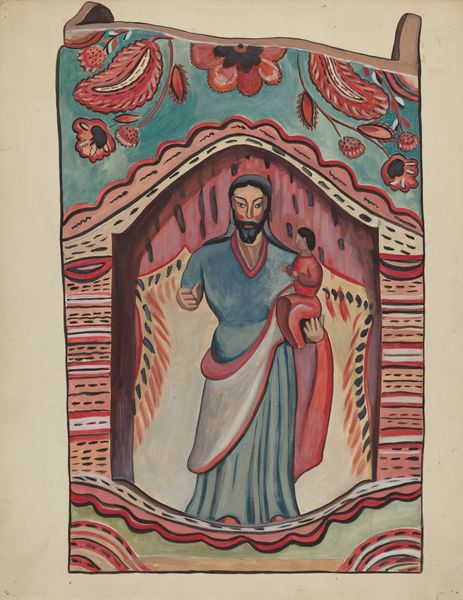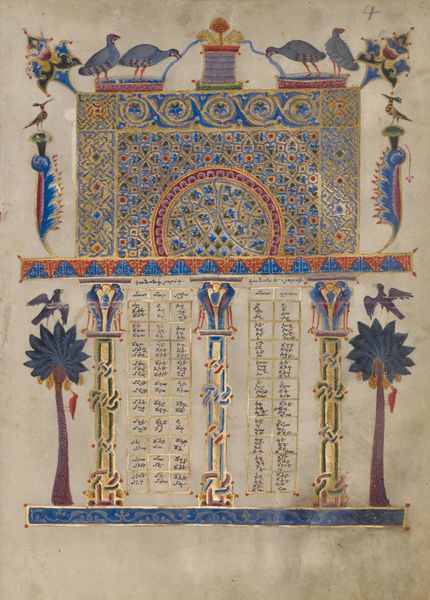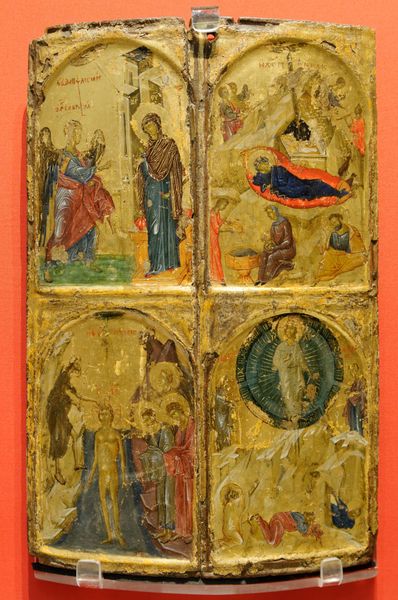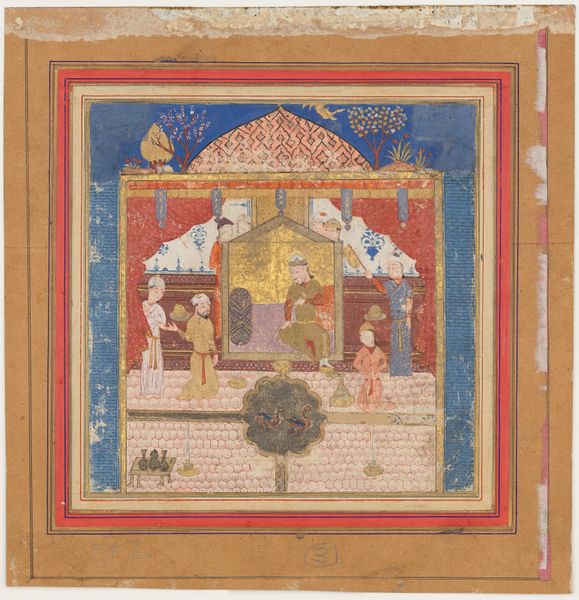
Four miniatures of the life of Christ from a gospel book of 1311 (Presentation, Baptism, Transfiguration, Entry into Jerusalem) 1311
0:00
0:00
painting, ink
#
byzantine-art
#
medieval
#
painting
#
figuration
#
ink
#
men
#
medieval-art
#
miniature
Dimensions: Presentation - 10 7/16 x 8 1/16 in. (26.5 x 20.5 cm); Baptism - 10 7/16 x 8 1/16 in. (26.5 x 20.5 cm); Transfiguration - 10 5/8 x 8 in. (27 x 20.5 cm); Entry into Jerusalem – 11 1/4 x 8 1/16 in. (28/5 x 20.6 cm)
Copyright: Public Domain
In this gallery, we can see four miniatures depicting the life of Christ, made in Armenia in 1311 by T’oros the Deacon for a gospel book. Each image is a window into the visual and spiritual world of medieval Armenia. The vibrant colors, the stylized figures, and the gold leaf all contribute to the gospel's symbolic power. Looking closer, one can identify visual codes that reveal the cultural context from which it emerged. Consider the architecture, the clothing, and the gestures of the figures. These details reflect the artistic traditions of Armenia, a region that served as a crossroads between East and West. Medieval Armenia was marked by political instability and cultural flourishing and religious institutions played a vital role. Manuscripts like this were not merely religious texts, but potent symbols of national identity, political resistance, and religious authority. Understanding the historical context of this artwork requires us to investigate the social role of art in medieval Armenia. Resources such as historical documents and comparative studies of Armenian art help us to appreciate the complex interplay between art, society, and religion in this fascinating period.
Comments
No comments
Be the first to comment and join the conversation on the ultimate creative platform.
